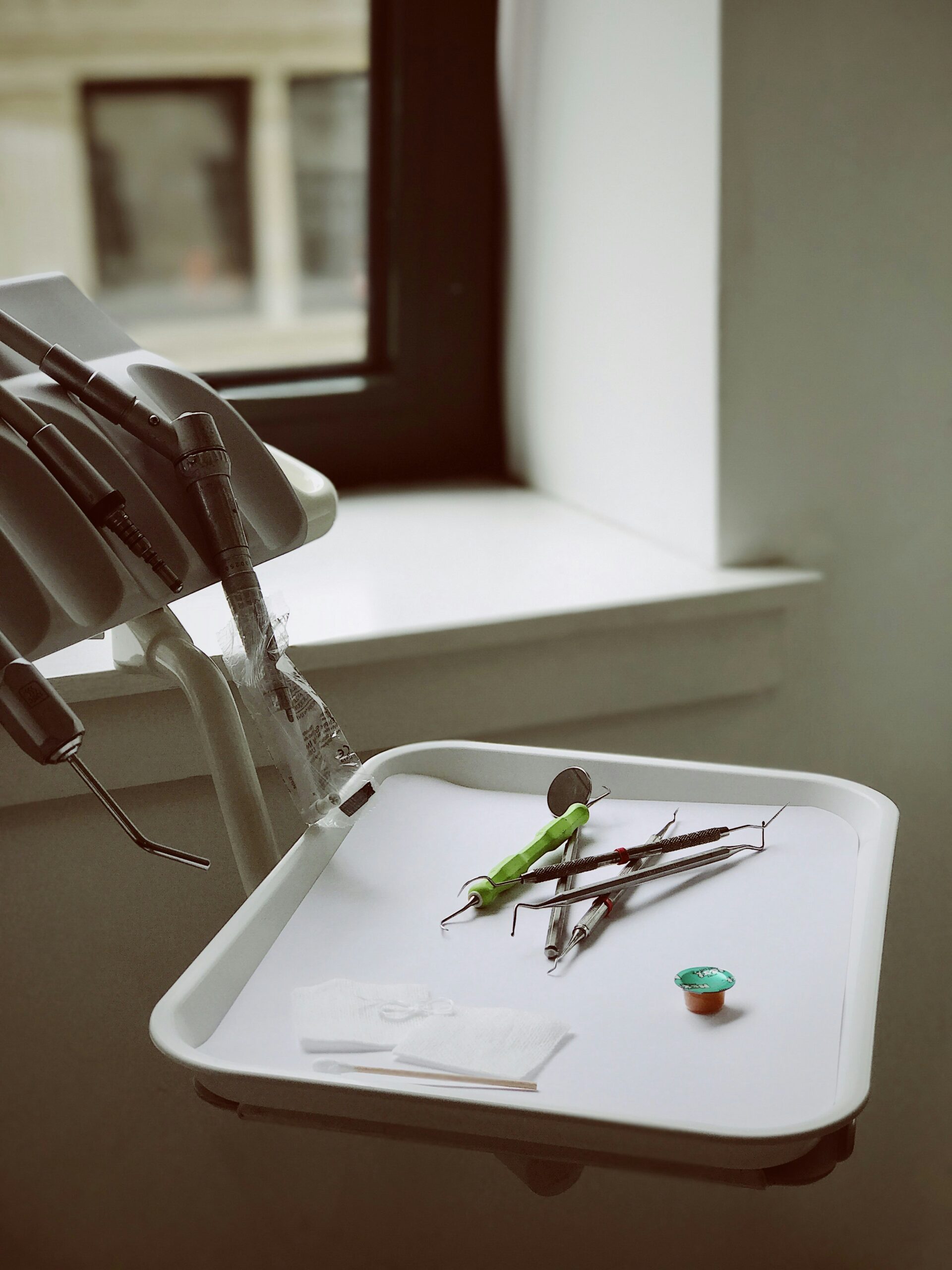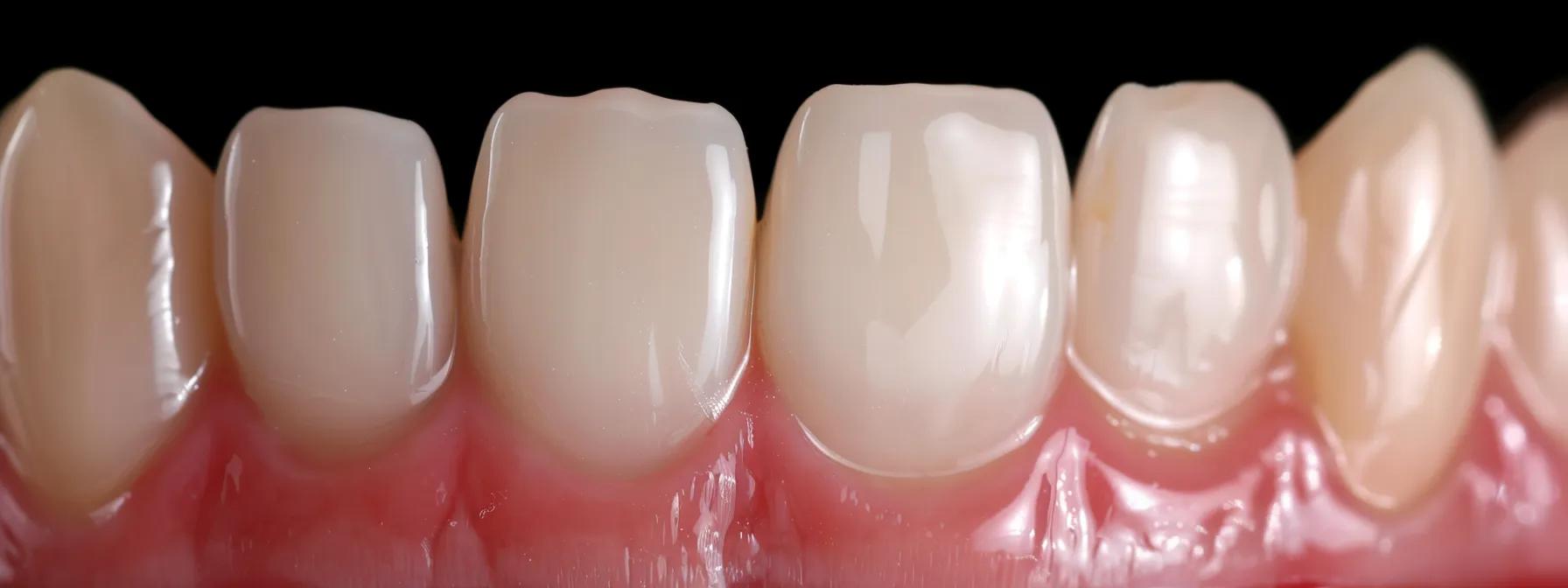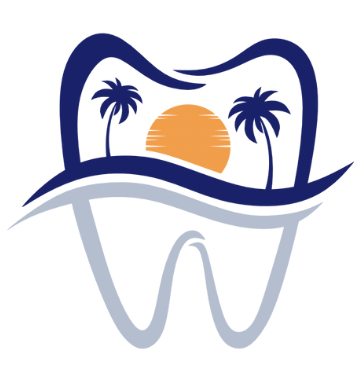Are you considering options for replacing missing teeth but unsure of the right approach? Dental implants offer an advanced alternative to traditional methods, providing a permanent solution that can enhance your smile. This article will explore the key benefits of dental implants compared to traditional approaches, discuss the situations where implants are preferable, and outline the costs involved. By understanding these aspects, readers will gain clarity on how dental implants can address their specific needs, ultimately supporting their journey towards a healthier, more confident smile.

Understanding Dental Implants and Traditional Methods
laguna heights dental offers advanced solutions designed to restore a radiant smile, offering a permanent option for those affected by tooth decay or injury. Traditional methods, such as grafts or dentures, provide valuable alternatives for dental makeovers. Understanding these approaches helps individuals make informed decisions that best suit their needs.
Definition and Overview of Dental Implants
Dental implants are sophisticated solutions that consist of a titanium post surgically placed into the jawbone, effectively replacing the root of a missing tooth. This implant integrates with the bone, improving density and stability, which is essential for long-term success. An abutment is then attached to the implant, providing a secure connection for the crown, thereby restoring function and aesthetics while allowing for optimal oral hygiene practices.
For individuals facing tooth loss, options like a free dental implant can offer significant advantages over traditional methods. Implants help maintain bone structure, reducing the need for procedures like a sinus lift that might be necessary when there is insufficient bone volume. This comprehensive understanding empowers patients to choose treatments that align with their health goals and lifestyle preferences, ultimately restoring their confidence and quality of life.
Definition and Overview of Traditional Dental Solutions
Traditional dental solutions play a crucial role in restorative procedures for those experiencing tooth loss or damage. Options such as inlays and onlays provide effective means to repair cavities, while veneers serve to enhance the appearance of teeth, addressing concerns related to shape, size, or color. Family dentistry often includes these methods to offer comprehensive services tailored to patients of all ages, ensuring a healthy mouth and a confident smile.
These conventional treatments focus on preserving existing tissue and function as much as possible. For instance, dentures may be recommended for patients with multiple missing teeth, restoring chewing ability and improving aesthetics. By understanding these traditional approaches, individuals can appreciate the range of choices available and select the method that best meets their specific needs and preferences.
Key Benefits of Dental Implants Compared to Traditional Approaches
Dental implants offer several advantages over traditional methods, particularly in terms of durability and longevity. Unlike dentures, which may require frequent adjustments, implants provide a permanent solution that enhances aesthetics through options like porcelain crowns. They also positively impact oral health and functionality by preventing bone loss and reducing the risk of disease. Additionally, maintenance of implants typically involves simpler care practices compared to traditional resin alternatives, making them an accessible choice for patients seeking a long-term solution.
Durability and Longevity of Dental Implants
Dental implants stand out for their durability and longevity, making them a preferred choice for those seeking effective solutions in cosmetic dentistry. Once placed, these implants fuse with the jawbone, providing a strong and stable foundation that can last for many years, often a lifetime with proper care. This durability not only mitigates concerns about ongoing maintenance but also enhances confidence in one’s smile, eliminating worries associated with traditional dentures that may slip or require frequent adjustments.
The longevity of dental implants also represents an investment that can ultimately lower the overall smile makeover cost compared to traditional methods. While initial expenses might be higher, the long-term satisfaction and reduced need for replacements or repairs significantly offset these costs. For individuals considering complex dental issues, the certainty and reliability of implants can provide peace of mind, knowing they are investing in a lasting solution that supports both their oral health and self-esteem.
Aesthetic Advantages of Implants Over Traditional Options
When considering aesthetic outcomes, dental implants often outperform traditional options due to their ability to closely mimic natural tooth structure. Made from materials that blend seamlessly with existing tooth enamel, implants provide a natural appearance that enhances confidence. Unlike removable dentures, which may shift or appear artificial, implants offer a fixed solution that allows individuals to smile, speak, and eat without concern for their appearance.
Moreover, dental implants support the surrounding gums, contributing to overall dental health. This integration not only preserves the natural contours of the face but also mitigates issues associated with bone loss that can occur when teeth are missing. By opting for dental implants, patients benefit from cutting-edge techniques, including laser-assisted procedures, ensuring a precise fit and optimal aesthetics, further aligning with the goals of effective orthodontics and comprehensive oral care.
Impact on Oral Health and Functionality
Dental implants significantly enhance oral health by providing a stable foundation for prosthesis placement. Unlike traditional dentures, which can shift and impair chewing function, multiple dental implants securely anchor to the jawbone, effectively preserving the arch of the mouth and preventing bone loss. This stability enables individuals to enjoy a more varied diet, ultimately contributing to their overall quality of life.
Moreover, dental implants promote better oral hygiene, as they can be cared for similarly to natural teeth. Individuals with dental implants can use clear aligners if needed, ensuring that their smile remains straight while preventing complications related to misalignment. This integration not only boosts functionality but also reinforces confidence, enabling people to speak and eat naturally without the fear often associated with removable dental appliances.
Maintenance and Care Requirements
Dental implants require maintenance that is akin to regular dental care for natural teeth. Patients should maintain proper oral hygiene by brushing with a soft-bristled toothbrush and using non-abrasive toothpaste. Regular dental check-ups are essential, allowing practitioners to assess the condition of the implants and surrounding structures, ensuring optimal health and longevity after tooth loss.
Compared to traditional methods, such as removable dentures, dental implants are more straightforward in terms of care. After the initial adjustment period, patients can treat ceramic crowns attached to the implants like their natural teeth, making maintenance simpler and more effective. Individuals seeking a durable solution should request an appointment to discuss specific care practices tailored to their unique dental needs.

Situations Where Dental Implants Are the Preferred Choice
The criteria for candidates for dental implants include individuals seeking long-term solutions to missing teeth that prioritize longevity and overall oral health. Common cases well-suited for implant solutions encompass those with full mouth restorations or experiencing pain from traditional methods. Patient experiences and success stories further illustrate the effectiveness of dental implants, enhancing both quality of life and oral hygiene practices.
Criteria for Candidates of Dental Implants
Candidates for dental implants typically include individuals who have sufficient jawbone density to support the implant. This is crucial, as the titanium post must fuse securely with the jawbone for optimal stability. Those who have lost teeth may need to consider their overall oral health, as conditions like gum disease can impact the success of dental implants. Consulting a dental professional helps assess these factors and determine the suitability of this treatment option.
Furthermore, potential candidates should be in good overall health and willing to undergo the procedure, which includes the use of anesthesia for comfort during surgery. Maintaining a commitment to dental care, including regular teeth cleaning and follow-up appointments, is essential for ensuring the longevity of dental implants. Individuals experiencing discomfort with traditional methods often find that dental implants provide a reliable and effective solution to restore their smile and improve their quality of life.
Common Cases Fully Suited for Implant Solutions
Dental implants are particularly beneficial for individuals needing complete tooth replacements, especially in cases of severe tooth decay or significant injuries. Patients who require full prosthodontics may find that dental implants offer a long-term solution due to their titanium construction, which integrates with the jawbone. This structural stability allows for secure attachment of crowns, helping restore both functionality and aesthetics in the smile.
Moreover, those who are dissatisfied with traditional dentures often turn to dental implants as a more reliable alternative. Implants provide a fixed option that eliminates the discomfort associated with removable metal dentures. With proper care, dental implants full not only enhance the quality of life by allowing for enjoyable eating and speaking but also contribute greatly to improved oral health, making them an appealing choice for many patients.
Patient Experiences and Success Stories
Many patients who have chosen dental implants report transformative experiences, particularly those who previously relied on traditional methods like dentures. For instance, individuals seeking molar replacements often express relief at achieving stable and secure restorations, which enhance their ability to chew comfortably and confidently. These successes highlight how dental implants not only restore function but also significantly improve overall quality of life.
Success stories frequently reflect a remarkable shift in self-esteem and satisfaction as well. People who once felt self-conscious about their smiles after tooth loss often share how dental implants have revitalized their appearance and confidence. Such firsthand accounts emphasize the difference that choosing dental implants can make, providing insights for others considering their options in the realm of dental restoration.
Understanding the Costs of Dental Implants Versus Traditional Treatments
Exploring the costs associated with dental implants compared to traditional methods reveals important financial considerations. A breakdown of implant costs will be discussed alongside the long-term expenses related to conventional procedures. Additionally, available financing options for those seeking dental implant solutions will be examined, providing valuable insights into making an informed choice that aligns with individual budgets and oral health needs.
Breakdown of Costs Associated With Dental Implants
The cost associated with dental implants encompasses several factors including the initial surgical procedure, the implant itself, and any necessary follow-up care. Generally, the average price for a single dental implant may range from $1,500 to $4,500, reflecting both the complexity of the treatment and the expertise required. This price typically includes the titanium post, abutment, and crown, providing a comprehensive solution that enhances overall oral health. You can get a dental implant cost estimate very easily.
In contrast to traditional methods, such as dentures or bridges, which often appear less expensive upfront, dental implants present a more cost-effective long-term solution. While replacing dentures may require ongoing adjustments and replacements over time, dental implants, when properly cared for, can last a lifetime, ultimately reducing the total expenditure related to tooth restoration. Individuals considering their options should evaluate not only the initial costs but also the long-term benefits associated with durability and improved quality of life that implants can provide.
Comparing Long-Term Costs of Traditional Procedures
When comparing the long-term costs of traditional dental procedures such as dentures and bridges, it becomes evident that these options may require more frequent adjustments and replacements over time. Many patients often find themselves returning for repairs or modifications due to wear and tear or comfort issues, leading to cumulative expenses that can exceed the initial savings. This ongoing financial commitment can add up significantly, emphasizing the need for individuals to carefully consider their investment in lasting solutions like dental implants.
Dental implants, while they may involve higher upfront costs, provide a more effective long-term financial strategy. With proper care, they can potentially last a lifetime, eliminating the recurring expenses associated with traditional methods. Patients who invest in implants not only benefit from enhanced functionality and aesthetics but also achieve peace of mind, knowing they have chosen a robust solution that supports their oral health needs and minimizes future costs.
Financing Options for Dental Implant Solutions
For individuals considering dental implants, understanding financing options can alleviate concerns about the initial costs. Many dental practices, including those specializing in implants, offer flexible payment plans that allow patients to spread the expense over time. This approach makes it easier for prospective patients to choose implants without the burden of overwhelming upfront costs while providing them access to essential treatments that enhance their oral health and quality of life.
Insurance may also play a role in financing dental implant solutions. While coverage can vary significantly, some plans include provisions for implant procedures, reducing out-of-pocket expenses for patients. Engaging with a dental professional to explore various financing alternatives, including health savings accounts or special financing programs, empowers patients to make informed decisions about their treatment options, ensuring they prioritize both their health and financial well-being.

Recovery and Aftercare for Implants Versus Traditional Methods
Expected recovery times for dental implants can vary, typically spanning from a few days to several weeks, depending on individual healing responses. In contrast, aftercare for traditional dental solutions often requires consistent maintenance but tends to be more routine. Understanding how to manage pain and discomfort post-procedure is crucial for both methods, ensuring a smoother recovery process for individuals pursuing optimal oral health.
Expected Recovery Times for Dental Implants
The expected recovery time following dental implants generally ranges from a few days to several weeks. Initially, the body needs time to heal around the surgically placed titanium post, and this process can vary based on individual health factors. Most patients experience mild discomfort and swelling, which can typically be managed with prescribed pain relief and appropriate aftercare instructions.
During the healing period, it is essential for individuals to adhere to the dentist’s guidelines to support optimal recovery. This may include eating soft foods and avoiding strenuous activities. As healing progresses, patients can expect an increase in comfort and functionality, paving the way for the placement of the final crown. Understanding the recovery timeline helps individuals manage expectations and plan accordingly, ensuring a smoother transition to enjoying the benefits of their dental implants.
Aftercare for Traditional Dental Solutions
Aftercare for traditional dental solutions, such as dentures and bridges, focuses on maintaining optimal oral hygiene to ensure long-lasting performance. Patients should regularly clean their restorations and gums to prevent plaque buildup and ensure that surrounding teeth remain healthy. Regular visits to a dental professional are also recommended to assess fit and comfort to avoid issues that might arise from wear and tear over time.
Individuals using traditional methods should be attentive to any discomfort or changes in their dental appliances. Adjustments may be necessary to maintain comfort and functionality. Proper care routines, including soaking dentures overnight and using non-abrasive cleaners, can significantly enhance the longevity of these solutions, making it essential for patients to stay informed about best practices to support their oral health effectively.
Managing Pain and Discomfort Post-Procedure
Managing pain and discomfort after dental procedures, particularly for implants, is essential for a smooth recovery. Patients can expect mild soreness and swelling, which are common after the placement of titanium posts. Following the dentist’s prescribed pain relief plan and using cold compresses on the affected areas can significantly alleviate discomfort and expedite healing processes.
For those opting for traditional solutions, the aftercare may involve different challenges. While discomfort is usually less intense, persistent irritation from ill-fitting dentures or bridges can cause frustration. Regular check-ups with dental professionals help to ensure that any adjustments needed are addressed quickly, preventing prolonged pain and enhancing overall comfort in managing post-procedure recovery.

Making an Informed Decision for Your Dental Needs
When evaluating dental options, several factors must be considered, including individual needs and preferences. Consulting with dental professionals provides essential guidance, helping patients prepare relevant questions for their appointments. Furthermore, real-life transformations through implants showcase the potential for significant improvements in smile makeovers. These considerations are key to making informed decisions about the right dental solutions.
Factors to Consider When Choosing Between Methods
When deciding between dental implants and traditional methods, individuals should consider their specific dental health needs and lifestyle factors. For instance, patients with sufficient jawbone density might find dental implants a suitable long-term solution, as these not only enhance functionality but also contribute positively to overall oral health. In contrast, those seeking immediate, temporary fixes may prefer traditional dentures due to their lower upfront costs and quicker healing times, making them easier to implement for individuals in need of fast results.
Another critical aspect to evaluate is ongoing maintenance and care requirements associated with each option. Dental implants generally demand similar care to natural teeth, involving routine oral hygiene and regular dental visits for monitoring. Alternatively, traditional methods such as dentures require consistent adjustments and careful cleaning routines to maintain comfort and functionality. Understanding these differences can guide patients in choosing the solution that best aligns with their preferences and commitment to oral healthcare.
Consulting With Dental Professionals for Guidance
Consulting with dental professionals is essential for individuals exploring their options between dental implants and traditional methods. A knowledgeable dentist can assess a patient’s unique dental health needs and provide tailored recommendations, ensuring that individuals receive guidance based on their specific situations. For instance, those with sufficient jawbone density may be advised on the benefits of dental implants, while others with different considerations might find traditional dentures more suitable for their circumstances.
During a consultation, patients are encouraged to ask questions and express any concerns regarding pain, costs, and recovery times associated with each method. This dialogue helps establish a clear understanding of both procedures and promotes informed decision-making. By consulting a dental professional, individuals can make choices that not only align with their oral health goals but also enhance their confidence and overall quality of life.
Preparing Questions for Your Dental Appointment
Preparing questions for a dental appointment is essential for individuals considering dental implants or traditional methods. Patients should focus on inquiries about each option’s suitability for their specific dental situation, including factors like jawbone density and overall health. Understanding the procedures, recovery times, and potential outcomes will enable informed choices that align with their personal needs and preferences.
Questions about the costs associated with implants versus traditional solutions are also crucial for making a well-rounded decision. Patients might ask about financing options available through the dental practice, as this can significantly impact their treatment choices. Engaging with dental professionals in a clear and direct manner ensures that all concerns are addressed, ultimately guiding patients toward the best solution for their dental health and lifestyle.
Real-Life Transformations: Implants in Smile Makeovers
Real-life transformations through dental implants showcase their effectiveness in smile makeovers. Patients often report significant improvements in self-esteem and confidence after receiving implants, particularly those who had previously struggled with traditional dentures or gaps from missing teeth. These enhancements not only restore the appearance of a full smile but also contribute to improved oral health and functionality.
For instance, individuals who underwent implant procedures frequently express satisfaction with their ability to enjoy a diverse diet and engage in social interactions without discomfort. Through the integration of cutting-edge dental technology and personalized care, dental implants provide a robust solution that aligns with the needs of patients seeking long-term improvements, ultimately enhancing their overall quality of life.
Conclusion
Dental implants offer a durable and aesthetically pleasing solution for those navigating tooth loss, standing out against traditional methods like dentures and bridges. Their long-term advantages, including improved oral health and functionality, make them a worthwhile investment for many individuals.
In contrast, traditional methods may provide quicker, temporary relief but often involve ongoing adjustments and discomfort. Ultimately, understanding the differences between these options enables patients to make informed decisions, enhancing their overall quality of life and restoring their confidence.
Get Started Today
Looking for dental care that makes you actually look forward to appointments? (Yes, really!) From the moment you step into our warm, welcoming office, you’ll notice something different – a team that treats you like family while delivering the exceptional care you deserve.
Meet Dr. Nazita Gaff and our dedicated crew, where state-of-the-art dentistry meets genuine, down-to-earth care. Whether you’re dreaming of a brighter smile, seeking relief from jaw tension, or just want a dentist who truly gets it, we’ve created the kind of experience we’d want for our own loved ones. Ready to transform how you think about dental visits? Your new dental home awaits!
Schedule your consultation Today!
Laguna Heights Dental
28202 Cabot Rd, Suite 600
Laguna Niguel, CA 92677
Driving Directions
(949) 363-1200
Related Articles
- Dental Implants
- Same-Day Dental Implants
- Affordable teeth implants
- Dental implants surgery
- Dentures with implants
- Full Mouth Dental Implants
- Mini Dental Implants
- Zirconia Dental Implants
- Dental Implants Price Guide
Dental Implant Success, Dental Implant Types, Dental Implant Candidates, Dental Implant Complications, Dental Implant Maintenanc, Dental Implant Cost Factors
See More Reviews From Laguna Height Dental. View information about local places in our community. Get Driving Directions to Our Practice





